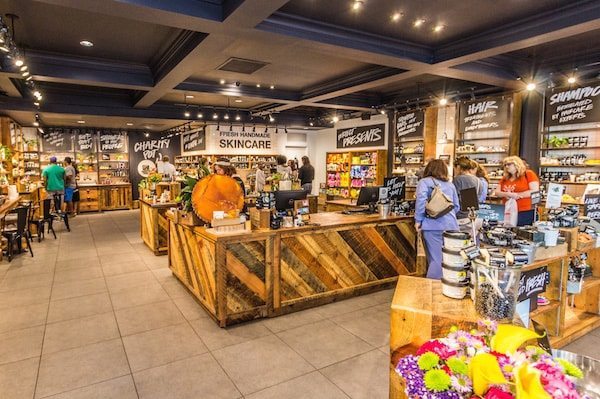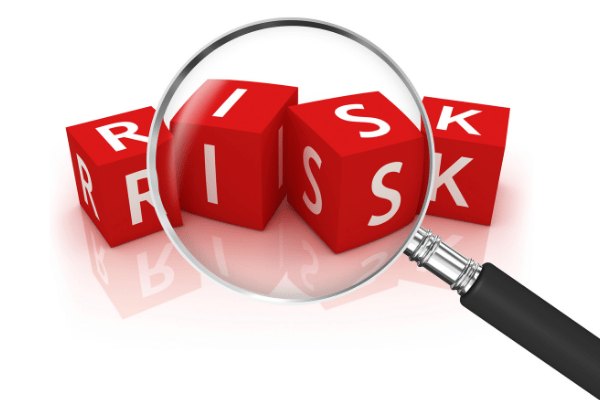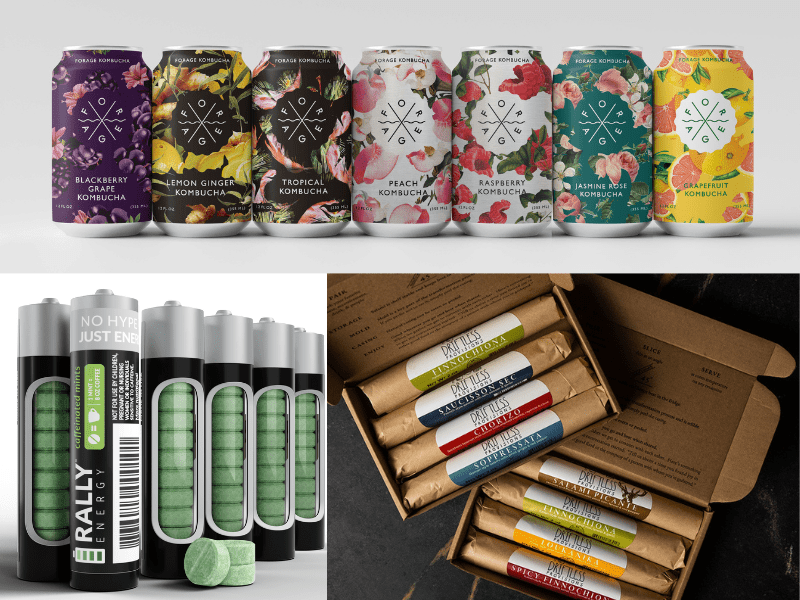One of the biggest lessons the COVID-19 pandemic has taught the food industry is that absolutely anything can happen, at any time, to radically disrupt business as usual. The upside is that companies are now thinking about potential risks to their business much more critically than before.
When a food entrepreneur imagines all the conceivable risks, it can seem overwhelming and, frankly, kind of scary. For instance, there could be another pandemic in the coming years, upending the industry all over again. There could be a natural disaster or catastrophic weather event, which are becoming more common due to climate change. A fire, flood, windstorm, drought, hurricane, or tornado has the potential to damage property, injure workers, cut off power, decimate a supplier’s facility or fields, or otherwise halt operations.
But the risks don’t stop there. Food entrepreneurs also worry about malfunctioning machinery, software crashes, on-the-job injuries, inflation, food safety issues, product recalls, supply chain disruption, cyberthreats … the list goes on.
Each one of these risks requires every food business’s attention, no matter how large or small the company. And that’s why the biggest risk of all may be to not devote sufficient time, energy, and money to effective risk management.
Risk management involves identifying, analyzing, and responding to all possible threats to a business’s operations, reputation, or survival. It entails putting solid strategies in place to mitigate risks whenever possible, minimize the damage should something bad happen, and bounce back from the issue as quickly, efficiently, and inexpensively as possible.
An important part of risk management is having a good insurance plan to help cover the costs of business-threatening events. Michael Schlagenhaufer, a manufacturing consultant at Acuity Insurance and an expert in risk management, says that many food producers, especially small companies, don’t fully understand what their coverage entails—and then find out the hard way that it’s insufficient.
Beyond insurance, a comprehensive risk-management framework consists of multiple elements. As Michael explains in the latest Edible-Alpha® podcast, it may include reinforcing the roof of a facility to protect against weather or doing flood mitigation around a property. It could entail solidifying quality control systems, implementing a supplier verification program, or getting a facility Global Food Safety Initiative (GSFI) certified. On the digital side, it may mean purchasing data security software, installing a firewall, or setting up a secured network.
Startup food producers may assume they don’t need to worry about this stuff until they scale up. But the truth is it’s never too early for risk management. Besides, small companies are less likely to have the size or funds to absorb damage from a cyclone, cyberattack, or spoiled food. But should risk become reality, effective risk management might just keep them afloat.
As Acuity Insurance’s manufacturing consultant, Michael Schlagenhaufer helps businesses large and small run production more efficiently and establish solid risk-management frameworks. Drawing from four decades of manufacturing experience, he offers guidance on processes, equipment, and identifying, assessing, and mitigating risks that could take a company down. Tune in to learn how small food producers can best protect their business from harm.

And now, our roundup of the best food and beverage finance news, events and resources from around the web…

Business Model Insights
- Gen-Z entrepreneurs bring new approaches to marketing (Nutrition Business Journal)
- Although Gen-Z founders are entering entrepreneurship at a young age, they possess marketing instincts that older executives can learn from.
- How Food Companies Can Prepare for Retaliatory Cyberattacks from Russia (The Food Institute)
- 2022 Predictions – Better Days Are Coming for the Food Industry (Food Industry Executive)

Raising Capital
- New partnership brings visibility to regenerative farming (Successful Farming)
- CIBO Carbon Bridge will provide pay-for-practice financial incentives for farmers transitioning to regenerative farming.
- The funding gap is real, but not insurmountable (New Hope Network)
- How to finance Scope 3 emissions reductions on farms (GreenBiz)

CPG/National Brands
- Ensuring consumer trust requires brands to take several extra steps (New Hope Network)
- Many food companies, particularly in the natural space, are bypassing the traditional supply chain in favor of creating relationships with farmers, eliminating middlemen and empowering the people behind their labels.
- Can’t Afford a Super Bowl Ad? Here’s the Playbook for Smaller CPG Brands (IRI Blog)
- As inflation surges, retailers & manufacturers need new strategies to earn consumer loyalty (FoodNavigator-USA)

Market Trends
- Consumer Perspectives on Regenerative Agriculture (Food Insights)
- New survey shows 42% of Americans believe their individual food choices can have a moderate or significant impact on the environment—yet the vast majority still haven’t heard of regenerative agriculture.
- Trends to expect at Natural Products Expo West 2022 (New Hope Network)
- What’s Next in Functional Beverages? (Deep Dish CPG)

Farming and AgTech
- The Yonder Origin Story: Regenerative Agritourism as a Proven Tool To Expand Regenerative Agriculture (Raising Regenerative News)
- Done well, agritourism can be a tool to expand regenerative agriculture through two levers: increasing consumer demand for regenerative products and providing additional on-farm revenue.
- What Is the Future of Organic? (Civil Eats)
- USDA pledges $215 million to grants and education for meatpacking expansion (Successful Farming)

Deals/M&A
- General Mills adopts ‘always on’ acquisition approach as ‘ongoing part of our accelerate strategy’ (FoodNavigator-USA)
- General Mills is hunting aggressively for acquisitions to expand its five core platforms—cereal, ice cream, snack bars, Mexican food and pet food—and reshape its portfolio.
- 4 Steps for Communicating a Merger to Employees (Entrepreneur)
- Sanzo raises $10m in Series A financing to bring authentic Asian flavors to crowded sparkling water category (FoodNavigator-USA)

Industry Events
Virtual events:
- Edible-Alpha® MVP Series Workshop: Marketing & Branding Planning: 3/17
- PLMA Global: Online Private Label Trade Show: 3/28–3/31
- FFI April Quarterly Trends Talk: 4/11
- Nutrition Capital Network Spring Investor Meeting: 4/19–4/20 (hybrid event)
- Edible-Alpha® Immersion Training: Scenario Planning: 5/1–5/11
- Edible-Alpha® MVP Series Workshop: Operations & Organization Planning: 5/12
In-person events:
- International Restaurant & Foodservice Show of New York: 3/6–3/8 in New York, NY
- Natural Products Expo West: 3/8–3/12 in Anaheim, CA
- Seafood Expo North America/Seafood Processing North America: 3/13–3/15 in Boston, MA
- Soil Health Academy School: Regenerative Farming & Ranching: 3/15–3/17 in Chico, CA
- PACK EXPO East: 3/21–3/23 in Philadelphia, PA
- SIAL America: Inspire Food Business: 3/22–3/24 in Las Vegas, NV
- Midwest Poultry Federation Convention: 3/22–3/24 in Minneapolis, MN
- Global Pet Expo: 3/23–3/25 in Orlando, FL
- SNX 2022: SNAC International Education and Collaboration Forum: 3/27–3/29 in Phoenix, AZ
- American Bakers Association Annual Conference: 3/27–3/30 in Palm Springs, CA
- 10th American Food Sure Conference: 3/29–3/30 in Chicago, IL
- Soil Health Academy School: Cropping Success Through Regenerative Ag: 3/29–3/31 in Kenansville, NC
- Specialty Coffee Expo: 4/8–4/9 in Boston, MA
- SupplySide East: 4/12–4/13 in Secaucus, NJ
- Nutrition Capital Network Spring Investor Meeting: 4/19–4/20 in New York, NY
- Petfood Forum: 5/2–5/4 in Kansas City, MO
- Craft Brewers Conference & BrewExpo America: 5/2–5/5 in Minneapolis, MN
- Food Safety Summit: 5/9–5/12 in Rosemont, IL

